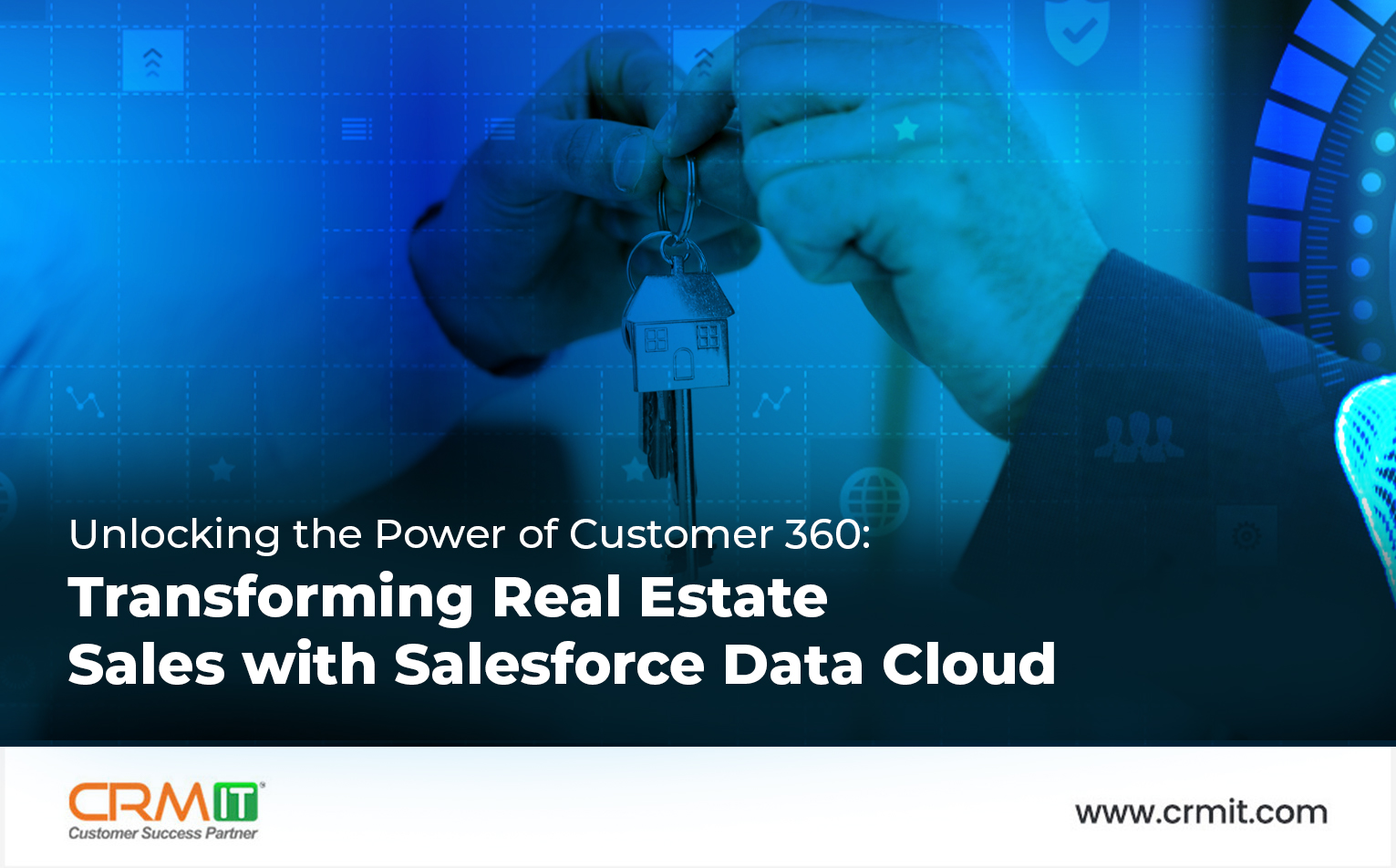Transforming Real Estate Sales with Salesforce Data Cloud

Why a 360-Degree Customer View is a Game Changer for Real Estate Sales
Real estate sales today are more intricate than ever before. Unlike a typical retail transaction, selling property involves much more than just closing a deal. Buyers are often households with varying priorities, from senior citizens to young children, and future life events. To meet these expectations, real estate firms need more than just a generic customer profile—they need a comprehensive, 360-degree view of each customer. This holistic view isn’t just a competitive edge; it’s fast becoming a necessity in an industry where personalization can make or break a deal. Leveraging Salesforce Data Cloud for a Customer 360 strategy enables firms to integrate diverse data points, making this vision a reality.
Understanding the Unique Needs of Modern Buyers
Picture this: A family is on the hunt for their dream home. It’s not just a matter of finding a house; it’s about finding the perfect space that checks every box—whether that’s accessibility for aging parents, proximity to schools for kids, or even the potential for future extensions. These needs are intertwined, making the sales journey far more complex than it first appears. For the sales team, understanding the motivations and requirements of every family member is crucial.
Then there’s the investor, whose primary focus is ROI. This buyer cares less about lifestyle features and more about metrics like capital gains, appreciation trends, and rental yields. Real estate firms that excel are those that can switch between these customer profiles seamlessly. A robust Customer 360 strategy equips sales teams with the data they need to tailor conversations, frame value propositions, and offer properties that align perfectly with the customer’s financial goals.
Bridging the Digital and Physical Worlds
In today’s digital age, customers often begin their property search online. They browse listings, compare prices, and even shortlist properties across multiple platforms—websites, Instagram, real estate apps—you name it. The challenge? By the time they’re ready to engage offline, they expect the sales team to know exactly what they’ve been exploring online. Unfortunately, many real estate companies struggle to sync digital and offline data, leading to disjointed customer experiences.
Imagine a scenario where a buyer, after extensive online research, visits a property site. The salesperson, unaware of the customer’s prior interactions, starts from scratch. That’s a missed opportunity. A unified Customer 360 view, powered through solutions like Salesforce Data Cloud, which allows you to easily access and integrate engagement data from websites & digital marketing channels, ensures that all these digital breadcrumbs—every click, every like, every inquiry—translate into actionable insights for the sales team. This continuity not only helps in better decision making but helps build trust and accelerates the sales process.
The Complex Ecosystem of Real Estate Sales
The complexity doesn’t stop there. Real estate sales often involve multiple partners—brokers, marketing agencies, and financial institutions—each playing a critical role. However, the involvement of various stakeholders increases the risk of information silos. What was discussed during the initial sales pitch may get lost as the customer moves through the process, from negotiation to financing and finally to closing.
Consider the scenario involving a broker: A customer expresses interest in a luxury apartment after being contacted by a broker who markets properties on behalf of multiple real estate firms. The broker gathers information about the customer’s preferences, such as their budget, desired amenities, and preferred location. However, when the customer is handed off to the sales team, key details are often lost in translation. The sales representative might not be fully aware of what the customer values most—like a sea-facing view or a pet-friendly environment—resulting in a mismatch between the property showcased and the customer’s actual needs.
This is where a Customer 360 solution makes a critical difference. By capturing every interaction the broker had with the customer and seamlessly integrating it into the CRM system, the sales team is equipped with the complete context. They can continue the conversation without redundancy, ensuring that the customer feels understood and valued.
In addition to the above, real estate firms can leverage Decision Science, using predictive analytics and data-driven models, to refine property recommendations, and guide the sales team in framing conversations that resonate. With this, raw data is transformed into actionable insights that can be directly applied to personalize offers, optimize pricing, and improve conversion rates. Salesforce Data Cloud allows you to build predictive models natively and also with the ‘Bring your own Model (BYOM)’ feature, access and use external models easily.
Conclusion: The Path Forward for Real Estate Firms
For real estate firms aiming to stand out, adopting a Customer 360 approach isn’t just advisable—it’s essential. By integrating customer insights across every stage of the buying journey, companies can enhance the customer experience, drive sales efficiency, and improve loyalty. The next step? Investing in technology that doesn’t just manage leads but also connects every department, partner, and platform into a cohesive ecosystem. In an industry where the customer journey is as varied as it is complex, those who master the art of personalization through a 360-degree lens will be the ones leading the way.
Saurabh Narendra Gupta
Chief Innovation Officer
Tags: Customer 360, Data Cloud, Salesforce Data Cloud



